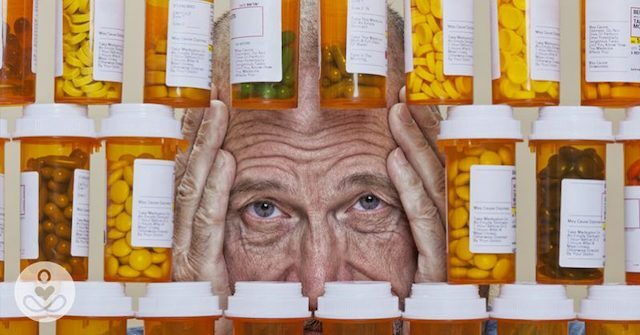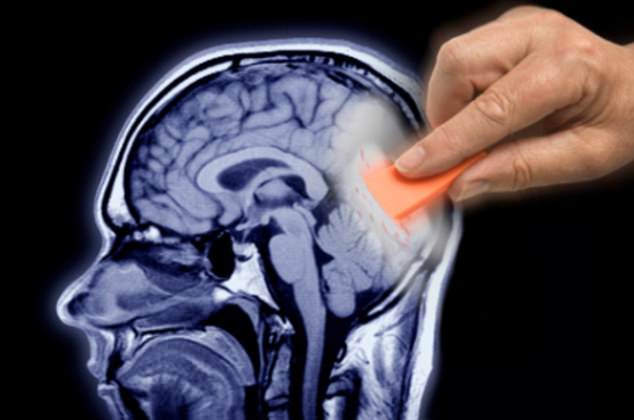Ultraprocessed foods linked to ovarian and other cancer deaths
Eating more ultraprocessed foods raises the risk of developing and dying from cancer, especially ovarian cancer, according to a new study of over 197,000 people in the United Kingdom, over half of whom were women.

Hot dogs qualify as an ultra-processed food, since they’re packed with preservatives. zz/Dennis Van Tine/STAR MAX/IPx 2018 via AP Images
Overly processed foods include prepackaged soups, sauces, frozen pizza and ready-to-eat meals, as well as hot dogs, sausages, french fries, sodas, store-bought cookies, cakes, candies, doughnuts, ice cream and many more.
“Ultra-processed foods are produced with industrially derived ingredients and often use food additives to adjust colour, flavour, consistency, texture, or extend shelf life… (Continue to full article)
 Which of your memory lapses are perfectly normal and which are signs of dementia?
Which of your memory lapses are perfectly normal and which are signs of dementia?
Forgetting is usually looked upon as a personal failure. If we try to remember an item of information and can’t come up with it, we blame ourselves. Forgetfulness is especially worrying to us because of the fear that our memory failures may be the result of a degenerative brain disease such as Alzheimer’s.
It’s an understandable fear. Our memories — the facts we know and the events we can recall from our past — form the basis of our identity. The novelist Stephen King was spot on when he wrote: ‘A person’s memory is everything. Memory is identity. It’s you.’
Since who we are is rooted in our experiences, the more we can remember, the richer our sense of ourselves… (Continue to full article)
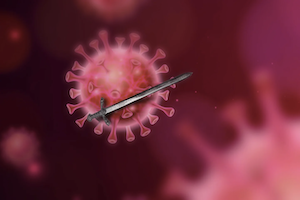 What Is COVID Actually Doing to Our Immune Systems?
What Is COVID Actually Doing to Our Immune Systems?
When the immune system goes awry, it’s bad news. A wonky immune system might mean that you’re more likely to catch colds and flus, or be infected by other pathogens—and less likely to shake them off. It might mean that your body fails to detect and destroy growing tumors. It might even mean that the body turns against itself, leading to chronic autoimmune conditions like arthritis or Crohn’s disease.
The fallout of immune system dysfunction on the human body is widespread and unpredictable—which is why it was so concerning in 2020 when evidence began to amass that COVID-19 seemed to be disrupting human immunology. So much so, in fact, that John Wherry, director of the Penn Medicine Immune Health Institute, summed it up this way to Kaiser Health News: “COVID is deranging the immune system.”… (Continue to full article)
 WARNING: Manufacturer recalls eye drops linked to one death and vision loss in an outbreak across 12 states
WARNING: Manufacturer recalls eye drops linked to one death and vision loss in an outbreak across 12 states
An India-based manufacturer recalled its brand name EzriCare artificial tears on Thursday after the Centers for Disease Control and Prevention said the eye drops could be contaminated with a drug-resistant bacterium.
The CDC warned people to stop using the eyedrops last month and said the recommendation was a precaution after it received reports of “permanent vision loss” resulting from eye infections and one person died from a bloodstream infection. It said the people had tested positive for a multi-drug-resistant bacterium.
Global Pharma Healthcare, which makes the Artificial Tears lubricant eye drops, announced the voluntary recall of the eyedrops on Thursday. The product was distributed throughout the United States… (Continue to full article)
 Ideal blood pressure may remodel brain clearance pathways linked to brain health, dementia
Ideal blood pressure may remodel brain clearance pathways linked to brain health, dementia
Among people who received more intensive treatment for high blood pressure, evaluations of MRI scans indicated a positive change in brain structures involved in its ability to clear toxins and other byproducts, according to preliminary research to be presented at the American Stroke Association’s International Stroke Conference 2023. The meeting, held in person in Dallas and virtually, Feb. 8-10, 2023, is a world premier meeting for researchers and clinicians dedicated to the science of stroke and brain health.
The study is the first to examine whether intensive blood pressure treatment may slow, or reverse structural changes related to the volume of the brain’s perivascular spaces, areas of the brain around the blood vessels that are involved in the clearance of toxins and other byproducts. These areas tend to enlarge as people get older or have more cardiovascular risk factors.
“If the brain cannot properly clear toxins and metabolic byproducts, they will accumulate and may contribute to the development of dementia”… (Continue to full article)
 How To Turn Your Brain Off At Night, According To A Sleep Psychologist
How To Turn Your Brain Off At Night, According To A Sleep Psychologist
If you’re like most people, you’ve been affected by stress-related sleep problems at some point or another, lying awake at night filled with anxiety about your career and the future. You may feel exhausted during the day but wired at night, desperate to shut off your racing mind so you can finally rest.
It may be hard to believe, but your brain wants (and knows how) to sleep well. You simply need to reset your relationship with sleep, so that instead of it feeling like a battle or a chore, it becomes the easy and enjoyable experience it should be.
That’s where Dr. Jade Wu comes in. As a board-certified behavioral sleep medicine specialist, she’s on a mission to help the 25 million Americans who struggle to fall asleep or stay asleep find rest at last… (Continue to full article)
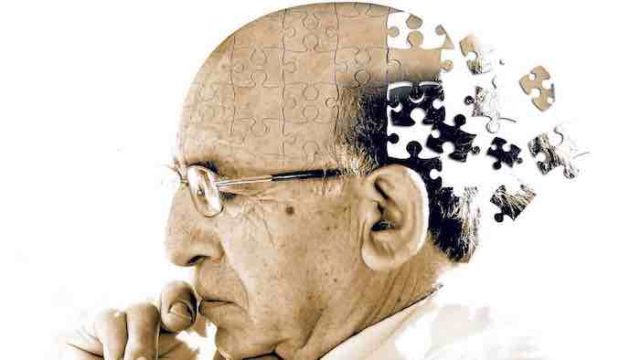 Scientists have discovered there are five types of Alzheimer’s, and this may explain why some drugs appear to be ineffective against the condition.
Scientists have discovered there are five types of Alzheimer’s, and this may explain why some drugs appear to be ineffective against the condition.

 Some of the time many physicians treat the symptoms of disease rather than the cause. With cancer, many times the cause of the disease is missing from the mode of treatment. Cancer patients are dying when the cause and a cure are now available. In Europe, Asia, India, Japan, England, and many other countries, a very high-pressure non-invasive cancer machine called the Cellsonic VIPP therapy machine has been curing cancer for many years. Recently, the company got a license from the FDA to use the machine in the United States. This is very great because cancer patients will be non-invasively cured when many oncologists are now mostly treating the symptoms of the disease with chemotherapy and radiation.
Some of the time many physicians treat the symptoms of disease rather than the cause. With cancer, many times the cause of the disease is missing from the mode of treatment. Cancer patients are dying when the cause and a cure are now available. In Europe, Asia, India, Japan, England, and many other countries, a very high-pressure non-invasive cancer machine called the Cellsonic VIPP therapy machine has been curing cancer for many years. Recently, the company got a license from the FDA to use the machine in the United States. This is very great because cancer patients will be non-invasively cured when many oncologists are now mostly treating the symptoms of the disease with chemotherapy and radiation.
 Which of your memory lapses are perfectly normal and which are signs of dementia?
Which of your memory lapses are perfectly normal and which are signs of dementia? What Is COVID Actually Doing to Our Immune Systems?
What Is COVID Actually Doing to Our Immune Systems? WARNING: Manufacturer recalls eye drops linked to one death and vision loss in an outbreak across 12 states
WARNING: Manufacturer recalls eye drops linked to one death and vision loss in an outbreak across 12 states Ideal blood pressure may remodel brain clearance pathways linked to brain health, dementia
Ideal blood pressure may remodel brain clearance pathways linked to brain health, dementia How To Turn Your Brain Off At Night, According To A Sleep Psychologist
How To Turn Your Brain Off At Night, According To A Sleep Psychologist
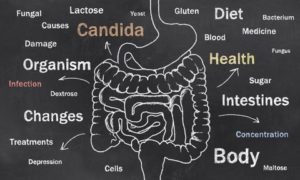 The following discussion about Alzheimer’s disease and Candida Albicans has been formulated from numerous publications and articles in my disease files. If there is no connection between Alzheimer’s disease and Candida Albicans, there is enough evidence to show that both diseases are diet-related and it takes twenty to thirty years for both diseases to show their debilitating effects. The toxins from Candida are a factor, even they may be only related along with other disease factors.
The following discussion about Alzheimer’s disease and Candida Albicans has been formulated from numerous publications and articles in my disease files. If there is no connection between Alzheimer’s disease and Candida Albicans, there is enough evidence to show that both diseases are diet-related and it takes twenty to thirty years for both diseases to show their debilitating effects. The toxins from Candida are a factor, even they may be only related along with other disease factors. 


